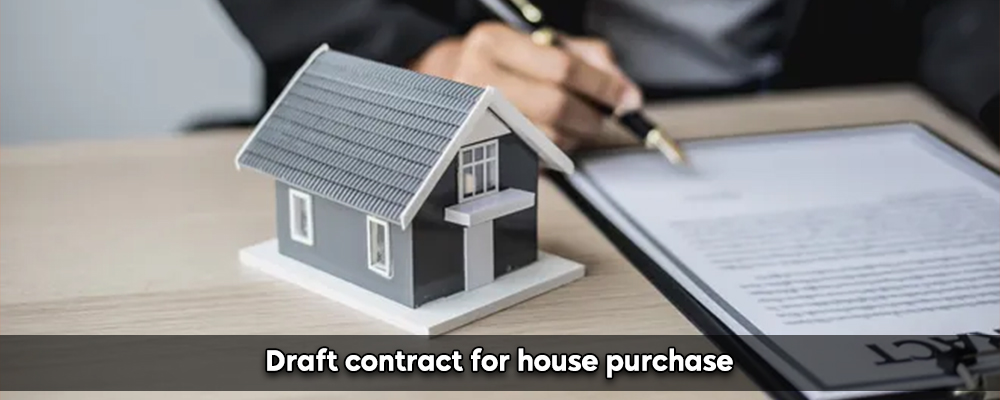A purchase contract is a formal agreement formed during the sale of company shares, real estate, or other assets between a buyer and a seller. To make the purchase, each party needs to be able to legally do so. The consideration, or the monetary amount being exchanged for the real estate, business stock, or other assets, is another foundation of the purchase contract. For a real estate purchase agreement to be enforceable in court, it needs to be in writing and signed.
Need A Legal Advice
The internet is not a lawyer and neither are you. Talk to a real lawyer about your legal issue

Here are some pointers to assist you in drafting a precise and useful contract.
Understand the fundamentals
Before beginning to draft a purchase agreement, you should be aware of the fundamental components and prerequisites of a legitimate contract. The legal description and address of the property, the purchase price and earnest money deposit, the parties’ names and signatures, the closing date and place, and any other pertinent information must all be included in a purchase agreement. In addition, you must confirm that the contract is in writing, contains a clear offer and acceptance, is backed by consideration, and complies with all applicable laws and regulations.
Make the terms unique
There is no one-size-fits-all purchasing agreement. You may wish to alter the terms and conditions of the contract to better meet your requirements and expectations, depending on your circumstances and personal preferences. For instance, you could wish to incorporate particular contingencies that permit you to terminate the agreement if certain requirements are not fulfilled, such as finance, appraisal, inspection, title, or sale of another property. It could be a good idea to haggle about how closing costs, warranties, repairs, and other charges are divided. Addenda, amendments, and riders are available for usage to alter or enhance the core contract.
Adopt plain language
A legally enforceable document, a purchase agreement can have serious ramifications for both parties. As a result, you must speak in a clear, exact manner that eliminates any possibility of miscommunication. Steer clear of ambiguous language that could lead to misunderstandings or disagreements later on, like “as is,” “subject to,” or “satisfactory.” Instead, describe each party’s rights and obligations using precise, quantifiable language, like dates, numbers, percentages, or standards. Additionally, you should refrain from utilizing any slang, jargon, or acronyms that the other party or the court might not understand or find appropriate.
Examine the specifics
Make sure all the information is correct and comprehensive before signing a purchase agreement by carefully going over the terms and conditions. Verify the contract for any mistakes, omissions, contradictions, or inconsistencies that can compromise its enforceability or legality. Additionally, you should confirm that the contract contains all of the terms and conditions that were agreed upon and that it accurately reflects your initial offer and counteroffer. If you are unsure about the contract or have any queries, you should also speak with a real estate agent, lawyer, or other expert.
Observe the guidelines
Purchase agreements must abide by the laws and ordinances of your state, county, or city in addition to being a contract between you and the other party. Real estate contracts may be subject to various laws and regulations in different countries. These may include differing requirements for transparency, contingency periods, earnest money deposits, and dispute resolution procedures. You must abide by the regulations and make use of the forms and formats that are relevant to your area. You should also know any modifications or updates to the legislation that could have an impact on your contract.
Who Drafts a Purchase Agreement?
The buyer’s agent usually writes the purchase contract. However, estate agents may not be permitted to draft their purchase agreements if they do not hold a valid license to practice law. To write the acquisition agreement, they can work with law firms or real estate attorneys.
A range of legal services, including online resources and free legal advice are offered by Lead India. You can talk to a lawyer here and ask legal questions.





 Talk to a Lawyer
Talk to a Lawyer